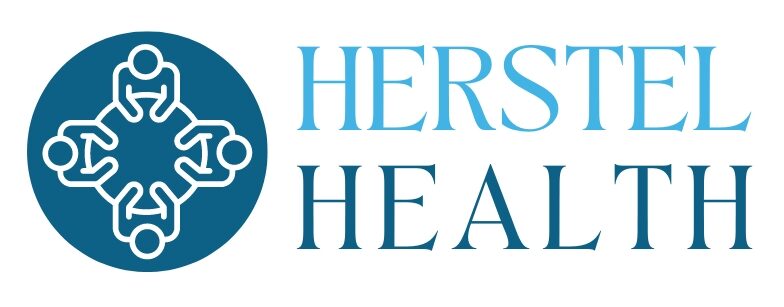Depression and coronary heart disease (CHD) are two of the most significant health concerns of our time. Unrelated on the surface, research has consistently shown that there is a strong link between the two. Studies have found that people with depression are at a higher risk of developing CHD, and those with CHD are more likely to experience depression.
Depression affects an estimated 300+ million people worldwide while CHD is the leading cause of death globally, accounting for over 17.9 million mortalities per year. In the United States alone, it’s estimated that over 16 million adults suffer from depression with over 92 million adults have high blood pressure (hypertension), a major risk factor for CHD. A study published in the Journal of the American College of Cardiology found that people with depression were 64% more likely to develop CHD than those without depression. A meta-analysis published in the Journal of the American College of Cardiology found that people with depression were 1.5 to 2 times more likely to develop CHD than those without depression. A study published in the Journal of Psychosomatic Research found that 20% of patients with CHD experienced depression, compared to 10% of the general population.
There are several mechanisms at play driving the link between depression and CHD. Studies have shown that people with depression tend to have higher levels of inflammatory markers, such as C-reactive protein (CRP) and interleukin-6 (IL-6), in their blood. These markers are indicative of chronic inflammation, which can damage brain cells and disrupt normal brain function. Inflammation can also lead to changes in the brain’s structure and function, including reduced volume of the hippocampus, a region critical for mood regulation.
Inflammation, in turn, is thought to disrupt the balance of neurotransmitters, such as serotonin and dopamine, which are essential for mood regulation. Inflammation can also lead to the production of pro-inflammatory cytokines, which can interfere with the function of these neurotransmitters. Inflammation can lead to changes in the gut microbiome which plays a critical role in the production of hormones, neurotransmitters and the regulation of the immune system. This gut imbalance (dysbiosis) has been linked to depression and other mental health disorders. A compounding effect naturally ensues. People with depression are more likely to experience a heart attack, stroke, or other cardiovascular event, while those with CHD are more likely to experience mental health conditions like depression and anxiety. A vicious cycle emerges where depression worsens CHD and CHD worsens depression.
How can we break the cycle between depression and CHD? First is understanding our metabolic and mental health are intimately connected. One cannot be treated without the other if we desire any long-lasting health benefits. A diet rich in whole, real foods coupled with regular exercise and activities to help reduce the likelihood of metabolic syndrome and stress are paramount. Cognitive-behavioral therapy (CBT) and other forms of psychotherapy like hypnotherapy and neuro-linguistic therapy can help individuals manage depression and develop healthy coping mechanisms. Regular screening for depression and CHD can help identify those at risk and facilitate early intervention. With the right approach the link between CHD and depression can be broken and the path to deep, lasting health is achievable.
Every Day is a New Day – Reap What You Sow
—
Struggling with Anxiety, Depression, or Weight Loss?
At Herstel Health, we consider the whole person. The mind and the body. Mental Health and Metabolic Health. Improving both together creates a harmonious state where you can thrive. The human being is an amazing organism with a tremendous capacity for self-healing whether regenerative growth from injury or fighting pathogenic invasion. Much of the illness and chronic disease we experience are rooted in metabolic disfunction and mental difficulties.
Schedule a FREE consultation today: www.HerstelHealth.com
References:
- van Melle et al. (2004). Depression and coronary heart disease: a review of the evidence. Journal of the American College of Cardiology, 43(11), 2129-2137.
- Lesperance et al. (2000). Depression and coronary heart disease: a review of the literature. Journal of Psychosomatic Research, 48(4-5), 379-392.
- Whooley et al. (2007). Depression and inflammation in patients with coronary heart disease. Journal of the American College of Cardiology, 50(19), 1804-1811.
- Strike et al. (2006). Depression and cardiovascular disease: a review of the evidence. Journal of Psychosomatic Research, 61(2), 161-171.
- Lett et al. (2004). Depression and coronary heart disease: a review of the evidence. Journal of Cardiovascular Rehabilitation, 24(5), 281-291.
- Davidson et al. (2006). Depression and cardiovascular disease: a review of the evidence. Journal of Clinical Psychology, 62(2), 141-155.
- Huffman et al. (2013). Depression and coronary heart disease: a review of the evidence. Journal of the American Heart Association, 2(3), e000068.
- Jiang et al. (2015). Depression and cardiac failure: a review of the evidence. Journal of Cardiac Failure, 21(10), 831-838.
- Katon et al. (2010). Collaborative care for depression and coronary heart disease: a review of the evidence. Journal of General Internal Medicine, 25(12), 1313-1320.

